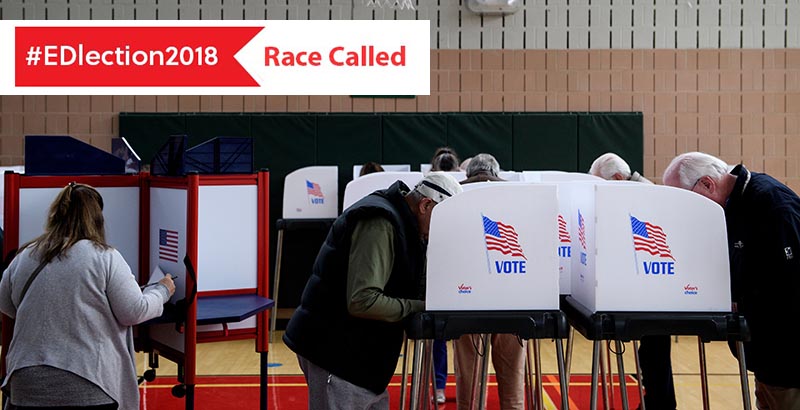EDlection2018: Arizona Voters Block Universal Education Savings Account Expansion

EDlection2018: This is one of several dozen races we’ve analyzed for the 2018 midterms that could go on to influence state or federal education policy. Get the latest headlines delivered straight to your inbox; sign up for The 74 Newsletter.
Arizona voters overturned a law that would have made every student in the state eligible for an education savings account, according to the Associated Press.
As of midnight eastern, more than two-thirds of voters had voted no, with 17 percent reporting, according to the Arizona secretary of state.
(Get the latest on our liveblog on all the education ballot questions and races across the country.)
Legislators in 2017 passed a bill to expand the program, which would have given parents up to 90 percent of what would be spent on a child’s public school education, to use for private school tuition, homeschool materials, or educational expenses. Up to 30,000 children would have been eligible. Instead, the program will remain limited to those in specific categories, including students with disabilities and children who attend underperforming schools.
There was bipartisan opposition to the expansion, with former Republican Gov. Jan Brewer saying the program was created just to help special needs students, and others concerned at a perceived lack of oversight of how families are spending the money.
Former Governor Jan Brewer (REP) & former Attorney General Terry Goddard (DEM) urge a vote of #NoProp305. Why the strong bipartisan opposition? Because #Prop305 is a bad idea that hurts taxpayers, hurts education & hurts Arizona. #NoProp305 pic.twitter.com/3MZx6RfnNn
— SOSArizona (@arizona_sos) November 4, 2018
A poll by the Arizona Republic had found the language of the ballot question was confusing; a “yes” vote upheld the expanded program, a “no” vote overturned it.
The campaign against the expansion was part of a larger “Red for Ed” advocacy movement across Arizona this year, including teacher walkouts for higher pay. A proposed tax increase for education was thrown off the ballot.
This marks the second defeat for universal ESAs, after the Nevada Supreme Court said lawmakers there couldn’t fund them with primary K-12 funds, and Democrats declined to find another revenue option after winning control of the state legislature.
School choice advocates attempted to cast the loss as a victory, saying the end result will be more children eligible for higher individual awards.
“While passage of 305 would have made all K-12 students eligible, we can now look forward to removal of the current growth cap of 5,000 new students a year and funding for every ESA will remain significantly higher,” American Federation for Children President John Schilling said in a press release.
Schilling said there was uncertainty about who was benefitting from ESA now.
“Many Arizonans may have been confused by misleading information stating most ESAs are used by children leaving A and B rated public schools … There is no way to leave an A, B or even C rated public school through the ESA program without meeting one of the (other) ESA eligibility criteria,” he said.
In addition to special needs students and those in poorly performing schools, those are children with an active-duty military parent, children living on Arizona tribal lands, those in foster or adoptive care and the siblings of ESA-eligible students.
EDlection2018: This is one of several dozen races we’ve analyzed for the 2018 midterms that could go on to influence state or federal education policy. Get the latest headlines delivered straight to your inbox; sign up for The 74 Newsletter.
Help fund stories like this. Donate now!

;)
